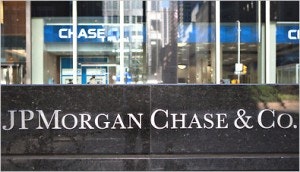The Commodity Futures Trading Commission (CFTC) is pushing for new regulations that would affect the way American based banks are allowed to operate overseas. The plan was formulated in the middle of last year and is now working its way into the banking world’s consciousness. In short, the new regulations would require both American banks that operate overseas and non-American banks that deal in a certain volume of derivatives to comply with certain standards.

The argument against the new regulation is that banks operating overseas could be caught in a system where they have multiple levels of conflicting regulation. That could lead those banks to close U.S. offices and find home elsewhere, or cover the extra costs of regulation by charging everyday Americans more.
Why we should support regulation
This isn’t a clear-cut problem, and banks like UBS AG (ADR) (NYSE:UBS) have pointed out that apart from regulatory hassles, the new requirements could pose data privacy issues, as well. But those issues can be overcome with both time and resources, and any bank committed to serving its customers in the U.S. should be able to find ways to make it work. If they can turn zero-down, high risk mortgages into AAA rated instruments, they can figure this stuff out.
The premise for the new regulations is a portion of the Dodd-Frank Act which exempts foreign banking operations unless they “have a direct and significant connection with activities in, or effect on, commerce of the United States.” Taking the London Whale as a test case, the JPMorgan Chase & Co. (NYSE:JPM)’s stock crashed 25% in the months after the trading losses came to light, putting investors and taxpayers at risk.
That risk is exactly what the CFTC is trying to mitigate. While the risk of investing in a bank — or any company — should be assumed by the investor, the risk of a company’s failure affecting ordinary citizens should be minimized. The balance between ease of use and economic safety must be heavily weighted on the side of safety.
What the new regulations would really do
The whole purpose of the regulation is to keep an eye on global swap activity that affects the U.S. This has been a hole in the U.S. regulatory framework, and has led to a shortfall in the implementation of the Dodd-Frank Act. Under the new law, swap traders would register as such once they hit a predetermined limit on trading. That limit would be determined by the value of swap trades made with “U.S. Persons,” a definition that includes U.S.-based corporations and their overseas subsidiaries.
Once registered, the overseas locations would have to abide by Title VII of the Dodd-Frank Act. That section imposes certain internal restrictions on transactions, dictates capital requirements, and increases the amount of disclosure that a bank has to have when it trades. The goal is to keep the system from falling into the minefield of risk that it resembled in 2008.
Banks are upset for two reasons. First, it’s a lot of paperwork, and that means more costs. But they’re going to have to suck it up. Second, it makes it harder to screw over the person you’re trading with. The transparency requirements require daily mark-to-market value updates on uncleared positions, which exposes the weaknesses of traders and their positions. That’s information the foreign traders have been able to keep to themselves, and that has helped them make more from the uninformed.
Wall Street has to learn that making money is never an excuse for endangering the basic fabric of the market. The new CFTC regulations go a long way toward making that point loud and clear. Congress is already under pressure from banks and lobbyists to weaken the Dodd-Frank Act — and it’s not even up and running yet. Throwing more loopholes into the regulation of American companies operating overseas would only add unnecessary risk to the economy. Everyone should be against that.
The article Why We Shouldn’t Give in to Wall Street originally appeared on Fool.com and is written by Andrew Marder.
Copyright © 1995 – 2013 The Motley Fool, LLC. All rights reserved. The Motley Fool has a disclosure policy.